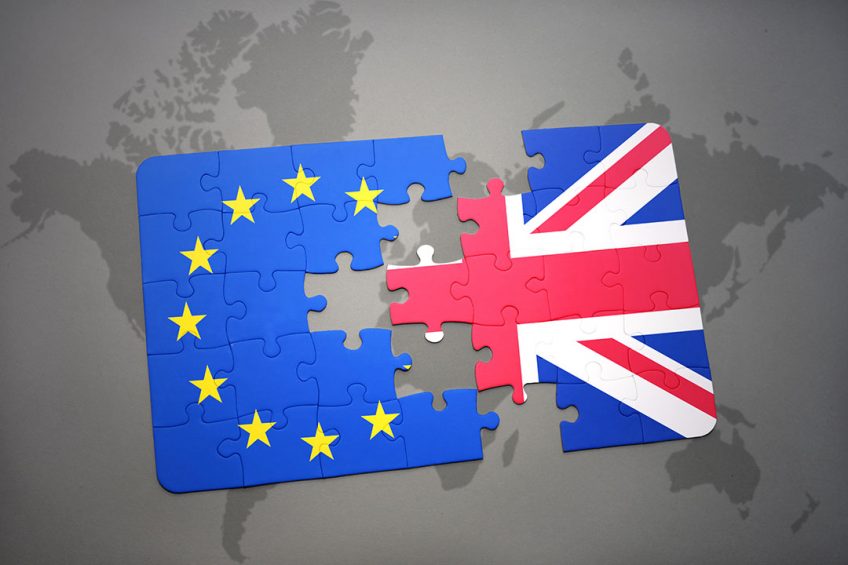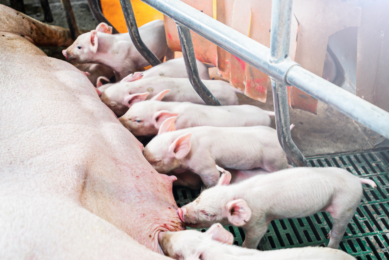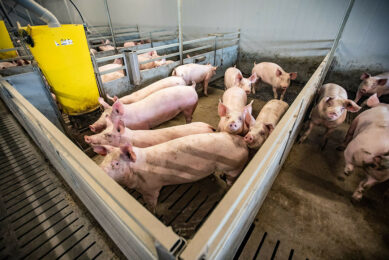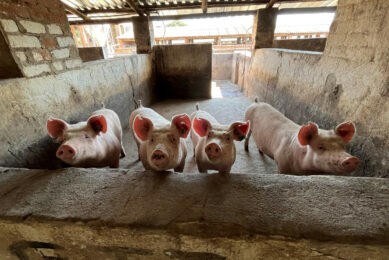‘No deal’ Brexit is worst case scenario for UK pig industry

The United Kingdom is about to leave the European Union (EU) on March 29 – there is no news in that. Currently the question is under what terms. One thing is for sure – a departure without a deal is likely to be disastrous for UK pig farmers.
As it now stands (January 22), UK prime minister Theresa May is desperately trying to get more members of parliament (MPs) on her side for a 2nd attempt to vote Brexit through the British parliament on January 29. If that fails, and politicians do not delay Brexit, then the UK could possibly leave the European Union with a so called ‘no deal’ – or the UK departing without any agreement made over the divorce conditions. That situation, many leading farm industry leaders say, would be disastrous for UK farmers.
Heightened fears for the UK pig industry
For the UK pig industry, there are heightened fears in the event of a ‘no deal’ Brexit as exports could be curtailed and imports still allowed in. The implications of a ‘no deal’ Brexit, as seen by the British Department for Environment, Food and Rural Affairs (Defra) and the UK National Pig Association (NPA), suggest a number of changes would be required including more documents to allow exports of live animals and animal products to the EU.
There are fears that export health certificates would be required from the end of March 2019, with consignments needing to travel through a border inspection post within the EU. With that in mind, the EU would require the UK to be a listed 3rd country, but that process could take 6 months and without listed status no exports to the EU could take place.
UK: A heavy dependence on exports
As the UK heavily depends on exports to keep its pig industry afloat, a ‘no deal’ could be a disaster for the sector that exported 110,000 tonnes of pig products, which equates to nearly 60% of all UK pigmeat exports, to the EU in the first 7 months of 2018.

Just before the Brexit referendum, Pig Progress editor Vincent ter Beek hinted that the British had the opportunity to save themselves from complete administrative chaos
NPA chief executive Dr Zoe Davies said: “A no deal could be the worst of all worlds for the UK pig industry. If exports are blocked but we continue importing pigmeat from the EU in large quantities, as the government appears willing to do, it would blow a huge hole through the economics of the UK pig sector.
UK will be swamped with pigmeat
Dr Davies continued to say, “Because of carcass balance issues, the UK would be swamped with pigmeat that had little value on the domestic market, dragging down the pig price and making it very difficult for many pig businesses to continue operating.
“As we have repeatedly stated, EU trade is critical to ensure the UK pig sector can function properly. It is therefore essential that the government does everything in its power to secure frictionless trade after we leave the EU.”
Listen to the podcast about the Brexit below.
Aim to keep prices and availability comparable
NPA senior policy advisor Ed Barker has also outlined what a ‘no deal’ could possibly mean for the UK pig sector. Mr Barker said: “As far as we are able to tell, from conversations with government, a ‘no-deal’ at this moment in time means the following for the pig sector. Imported products can still come in tariff-free and subject to same inspection processes, i.e. very few. The aim is to keep prices and availability comparable to what they are now. This will be the case for the EU and rest of world as under World Trade Organization (WTO) rules we cannot treat countries differently to each other.
“You can only do this if you have a free trade agreement in place. This applies to all products and not just food. Exports of pig products to EU are unlikely to be hit by tariffs straight away because there is a lot of EU quota to use up.”

What does the UK’s pig industry look like?
Exports to China will continue in the same way
Mr Barker said, “Exports to China and other 3rd countries where the UK has agreed bilateral deals are expected to be able to continue in the same way. This is not 100% assured but no kickback has yet been experienced from those countries as the standards will be the same and the agreements have been made bilaterally.
“Work is ongoing with embassies and others to make sure these assurances are given in the most important export markets. Pig products and live animals will be physically able to be exported, but would be subject to inspection at borders on products going out to the EU. Live animals being exported will have to go via a border inspection post in country of arrival,” he said.
Pig movements to and from Ireland
Mr Barker added: “Ireland is a major issue and there have been no tangible ideas on how to inspect movement of goods from north to south without a border in place. All existing free trade agreements that EU has with other countries such as Japan, Canada, are likely to cease for UK unless it can come up with a bilateral agreement in the interim.”

What does the Irish pig industry look like?
He concluded, “As you can imagine the issues being raised as a result of no deal are increasing by the day and we are always trying to pick through the most relevant aspects for producers, as it emerges. It is important to consider the market shocks created by a no deal and where this may go for consumer demand, currency and ability to move cull sows for example.”











